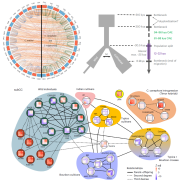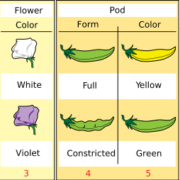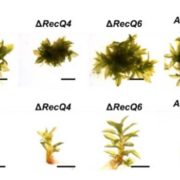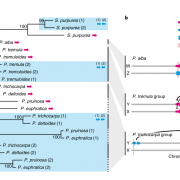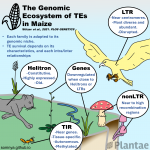After all, mutations are not that random (Nature)
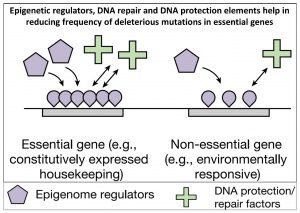 Mutations, defined as changes in DNA sequence, have long been considered to be random. However, growing evidence suggests that maybe mutations are not random, but instead some loci in the genome are hot spots for mutations, while other loci rarely mutate. This effect is considered mutation bias. A recent study by Monroe et al. in Arabidopsis thaliana supports this model. The authors observed that mutations are more common in intergenic regions than in the genes. Similarly, they also observed a high probability of mutations in regions associated with environmental adaptation and a low probability of mutation in genes associated with core biological functions. This is consistent with the notion that genes involved in environmental adaptation/responses are evolving and diversifying faster than genes involved in core biological processes. The authors also observed this mutation bias is associated with other factors such as DNA repair and histone modifications, which seems to favor a low frequency of mutation in essential genes as compared to other genes. The authors draw a comparison between these effects and loaded dice, which act to favor a particular outcome (beneficial mutations) and are biased against other outcomes (harmful mutations). Summary by Kamal Kumar Malukani @KamalMalukani. Nature 10.1038/s41586-021-04269-6
Mutations, defined as changes in DNA sequence, have long been considered to be random. However, growing evidence suggests that maybe mutations are not random, but instead some loci in the genome are hot spots for mutations, while other loci rarely mutate. This effect is considered mutation bias. A recent study by Monroe et al. in Arabidopsis thaliana supports this model. The authors observed that mutations are more common in intergenic regions than in the genes. Similarly, they also observed a high probability of mutations in regions associated with environmental adaptation and a low probability of mutation in genes associated with core biological functions. This is consistent with the notion that genes involved in environmental adaptation/responses are evolving and diversifying faster than genes involved in core biological processes. The authors also observed this mutation bias is associated with other factors such as DNA repair and histone modifications, which seems to favor a low frequency of mutation in essential genes as compared to other genes. The authors draw a comparison between these effects and loaded dice, which act to favor a particular outcome (beneficial mutations) and are biased against other outcomes (harmful mutations). Summary by Kamal Kumar Malukani @KamalMalukani. Nature 10.1038/s41586-021-04269-6


